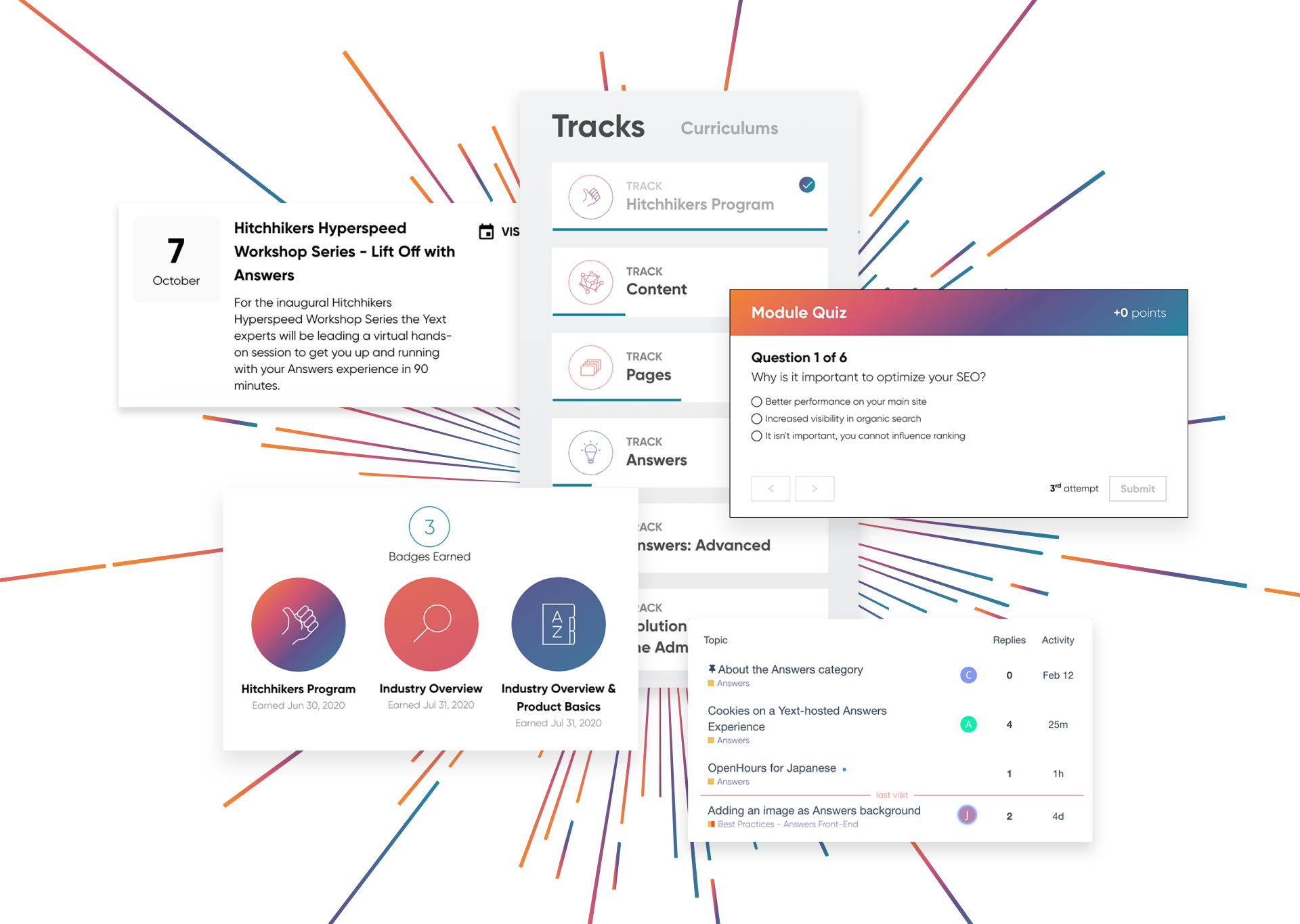
The Problem with Keyword Search
A great search engine understands a user's intent and returns the most relevant results. Modern search engines, like Google, Bing, and DuckDuckGo, are really good at this. But outside of major search engines, most enterprise search technologies fall short because they only look at the words in the query, not the intent behind it. They use "keyword search," technology that has not changed for decades.
But keyword search has a major flaw: humans use different words to ask the same questions. Consider the following examples:
The users behind these searches have similar or the same intent, and a keyword-based approach will fail to provide the most relevant results for these searches that are looking for the same information.
Keyword-based systems often employ techniques including TF-IDF, synonyms, stemming, and lemmatization to improve results, but these hacks are time-consuming and error-prone, and they still do not get to the intent of a user's search. The user will likely get a list of links that have at least one keyword match, and they will have to search for the relevant information themselves, if it is even there.
How Semantic Text Search works
We trained Google's BERT to better understand what a customer is really looking for. This means that, unlike keyword-based systems, Search knows that someone searching "send back shoes" is looking to kick off a return process, and that someone asking about a "dislocated shoulder" probably needs an orthopedist.
Search analyzes the meaning behind the query and finds the entities that have the most relevant answers to that query. It uses neural networks to understand precisely what the user is looking for and find the most relevant results from Content.
Yext fine-tuned BERT to better understand search queries. When a user enters a query, Search encodes it as a vector, creating a numerical representation of the query. Then, it looks for the data in Content that is closest to the query in vector space.
Two vectors that are close in space share meaning more than two that are far apart. Semantic Text Search places a query in vector space, and it locates the content that is closest to it, giving your customers the answers they might not have realized they needed.
These vectors have 768 dimensions—which is impossible for us to wrap our heads around—but you can visualize the process in two dimensions here:

One Platform. Unlimited Solutions.
Drive revenue and delight customers
Transform site visitors into customers and learn more about what matters most to them with a dynamic AI site search on your website.
Capture and convert more local business with location listings. Turn maps, GPS apps, and local directories into your best marketing channel.
Your online reputation can win or lose you business. Generate, manage, and respond to reviews at scale with Reputation Management from Yext.

Empower customers and agents to self-serve
Enable customers to find instant answers to their support questions via FAQs, guides, tutorials, videos, ebooks, manuals, and more
Decrease case creation by recommending related content based on the issue being raised - right within the case submission form.
Resolve cases in record time with agent desktop search. Empower agents to drive faster case resolution as they troubleshoot customer issues at scale.
Answer your customers’ questions before they even reach your help site by improving your ranking and presence in search.
Deliver a seamless experience with in-app support. Allowing customers to seek help right within your app makes for a superior user experience.

Increase sales
Connect customers with relevant products, services and experiences from search to checkout.
Yext Pages has powerful tools to let you confidently launch, manage, and scale your business, by building stunning detailed product pages that capture high-intent traffic.
Boost your local online presence with Yext's local landing pages. Easily create and manage customized pages for each of your business locations, complete with accurate information, photos, and calls to action. Attract more customers and drive more sales with Yext's local landing pages.
Create an in-person sales experience online that available 24/7. Guide your customers towards the right products or services that align with their individual needs.
Make it easier for customers to find your products by connecting your physical and digital storefront.
Tailor product data in bulk to easily update information wherever customers shop your inventory.
Effectively manage all of your product data in one place and easily share details to third-party marketplaces.
Build shopping excitement and trust that fosters more purchases.
Turn each interaction into a long-lasting relationship by connecting better with shoppers at every step of their customer journey

Improve employee productivity and satisfaction
Employees need company information to do their jobs. Make it easy, fast, and fun to find with AI-powered workplace search solutions from Yext.

Build custom experiences fast
Build on the Yext platform for a fully custom AI search experience — fast. With SDKs, APIs, and robust documentation, the Yext Answers Platform provides the building blocks to create a bespoke search experience.

Explore Related Features
